California needs to reform Prop 64
The law that legalized recreational weed in the state has big problems
Welcome back! This is the last week of entirely free Cannabitch content. Going forward, every Tuesday will continue in this format. For paid subscribers, extra content begins next week: video interviews, pieces by other writers (!!!), art collaborations, and extra musings, like travel dispatches, from me. If you haven’t yet, please consider paying to subscribe. It not only keeps this newsletter going and expanding but it literally, physically keeps my actual lights in my house on. Plus, if you sign up now, you’ll be the first to check out next week’s subscriber-only content, which is a reported piece from another cannabis writer about the intersection of cannabis and Traditional Chinese Medicine (TCM). Thank you for being here!
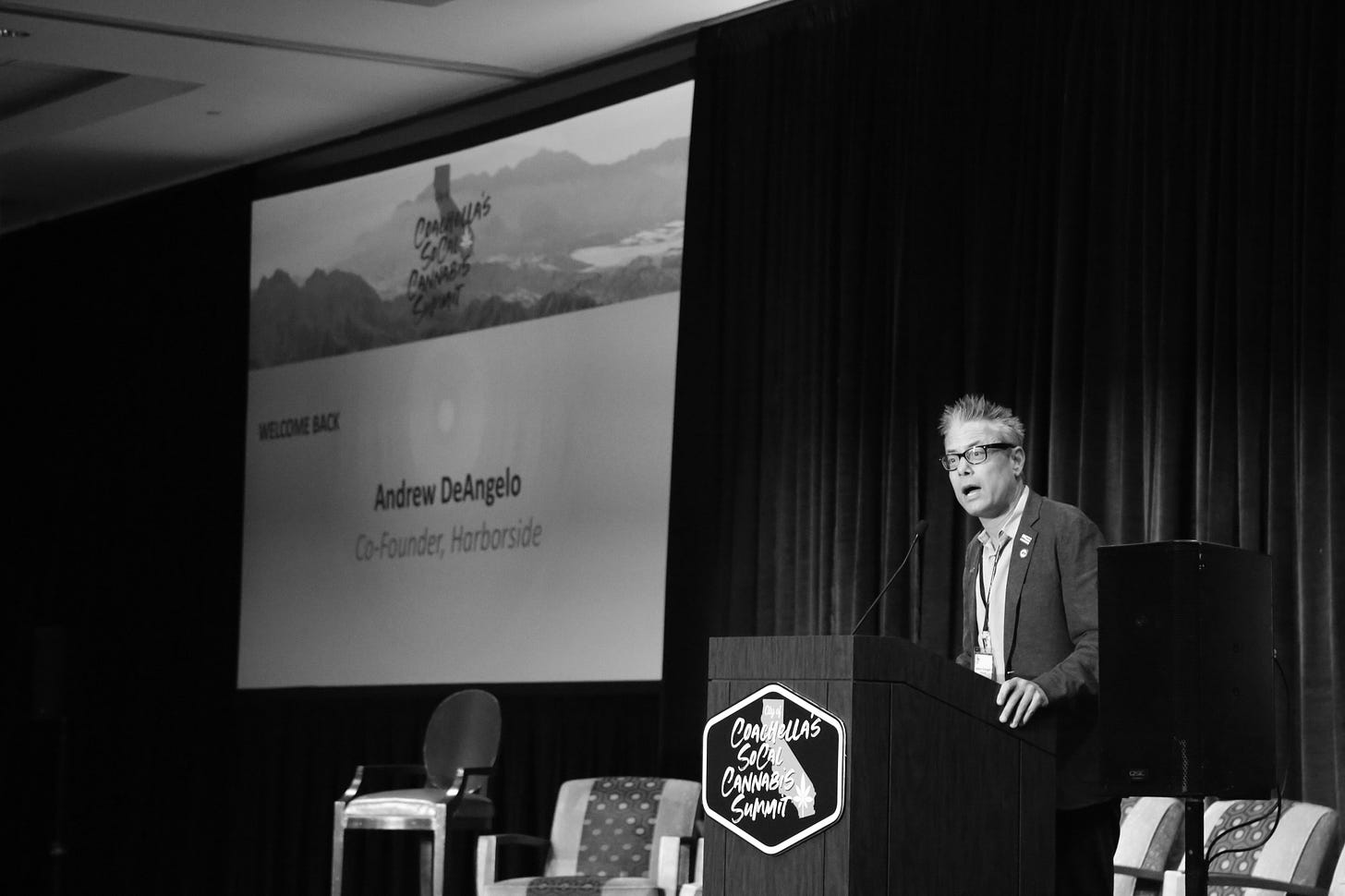
“Prop 64 is the worst fucking thing the state of California has ever done,” an Emerald Triangle grower I met last month told me while we sat physically distanced, eating cold, vinegar-tinged gas station burritos and shooting the shit.
As someone tangentially involved in California’s cannabis industry, I wasn’t surprised to hear this. In fact, I agree with him and I know that just about everyone else who formally works in cannabis in the state does, too. Proposition 64 (Prop 64 or 64), which in 2016 legalized cannabis cultivation, sale, and consumption for adults over 21 in the state, has not panned out the way some people hoped it would. However, for those in the know, it has played out exactly as expected, which is to say, not well at all.
The criticisms are many. The barriers to entry—permitting fees, taxes, compliance requirements for farm facilities, et cetera—are too numerous and high. As a result, growers are bankrupting themselves to comply, choosing to remain entirely or partially in the legacy market (also known as the illicit or black markets), or selling their farms and exiting the business altogether. Money from said taxes was earmarked for law enforcement, meaning cops are enjoying a better payday from legal weed than almost anyone else, which is some real bullshit. Access to banking and traditional business loans are not readily available because cannabis is still illegal at the federal level. New regulatory agencies abound. And local control means that, despite being legal in the state, individual municipalities have the right to prohibit sale within their own borders. Right now, it’s not possible to buy legal cannabis in almost 75% of California.
When it was originally drawn up, Prop 64 didn’t include many of the provisions that resulted in the shitstorm I just outlined. In order to get it passed, says Andrew DeAngelo, cannabis industry consultant, activist and strategic advisor and co-founder of Harborside, they had to play ball with various interests. Cops. Politicians. Activists, tech investors and celebrities with lots of money. And so on, and so forth. He wrote about it earlier this year for Benzinga.
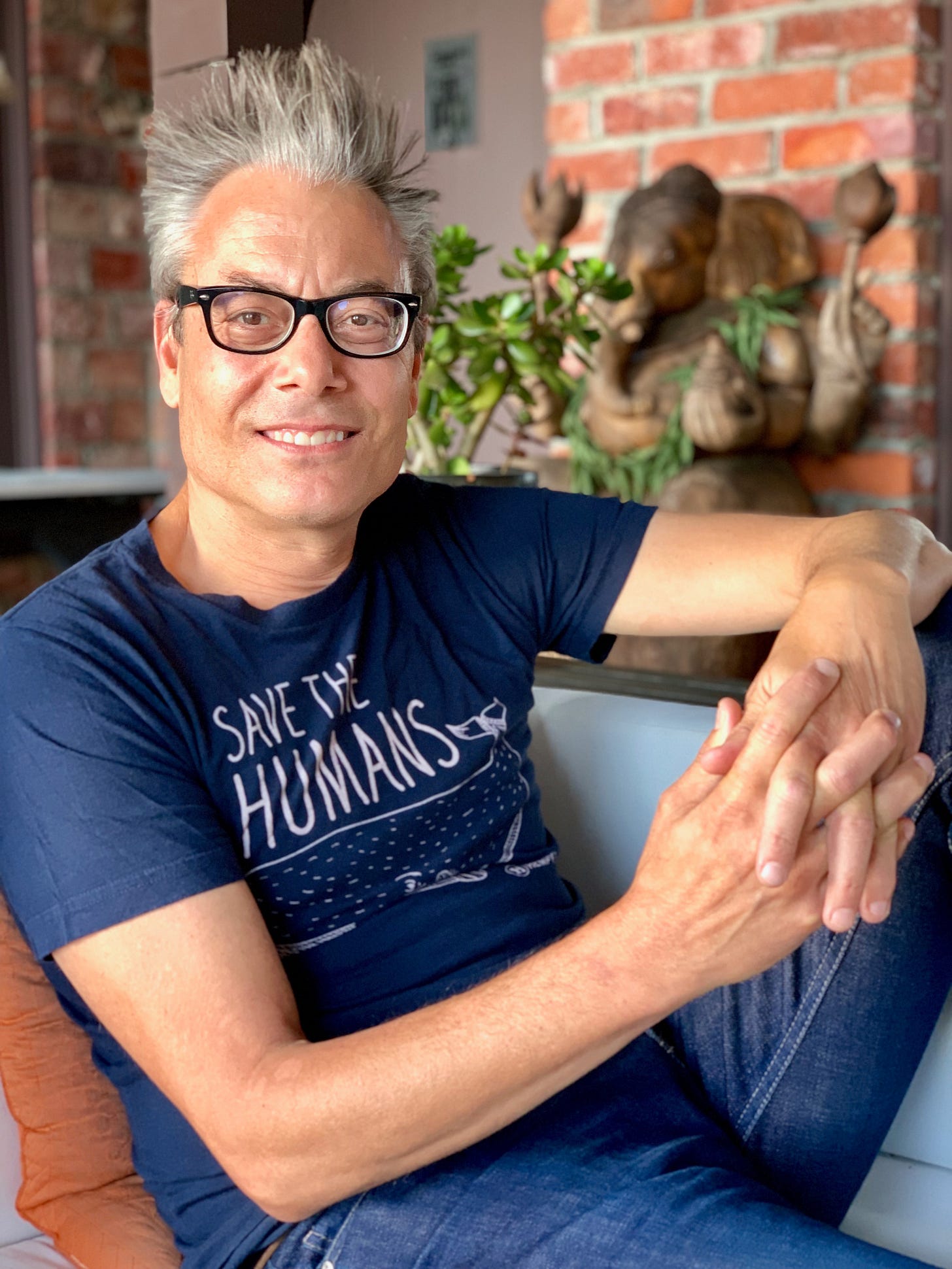
“You know, we had Prop 19 in 2010. That was our first adult-use, legalization effort post-215 [the 1996 proposition that resulted in medical cannabis in California]. And it failed,” DeAngelo explains. “After it failed, the federal government and the DEA attacked California medical cannabis companies, including Harborside and Oaksterdam University. The federal government seized literally hundreds of dispensaries using a forfeiture action enforcement mechanism in the law.”
So, he explains, the activists behind Prop 64 were terrified of losing again—besides losing lots of money, people could lose their entire businesses and even end up jailed. Investors were wary of supporting another adult-use proposition so soon after the previous one had failed, though, and the movement struggled to raise money. Realizing the uphill battle they were up against, they became willing to introduce concessions to raise money and ensure the proposition’s passage.
“It was a collaborative effort between funders and activists,” DeAngelo carefully notes. “But the funders really started to call the shots. And we were worried that some of these things were going to come to bite us in the rear end later, once we won and tried to implement 64,” he adds. Still, he says, Prop 64 had to be passed. Colorado, Oregon and Washington had already gone legal. People were languishing in jail for cannabis offenses.
“The legacy market was really good to me,” DeAngelo continues, noting that he has been arrested for cannabis offenses but not convicted—his brother, Steve, also a co-founder of Harborside and considered by many to be the figurehead of legal cannabis, has a felony cannabis conviction on his record. “I was given the plant. We worked really hard. We weren't greedy. We took our money. We put stuff on the ballot. We tried it. But we hated being criminals. It was a terrible lifestyle to hide. And all our friends got busted and we had to use our money to get people out of jail and hire lawyers. It was terrible to have to live that way. It stunts your development as a leader, as a professional, because 80 percent of your time you're spending your energy on, ‘how do I hide better? How do I deal with this cash I got right now? How do I clean this money? How do I, you know, pay my rent with clean money?’"
“So we wanted to change the law. We had to. I lose sleep over it to this day,” he says of Prop 64’s eventual passage and implementation.
DeAngelo is anxious for good reason. California’s cannabis community remains sharply divided over Prop 64, despite accepting it as a necessary evil, and the state’s legacy market is stronger than ever. In January, the Sacramento Bee reported that “black market cannabis operators made an estimated $8.7 billion in 2019, according to a forecast from BDS Analytics and Arcview Market Research. By comparison, the legal market made an estimated $3.1 billion.” It should also be noted that California has the biggest legal cannabis market on the planet.
That also makes it the largest legal cannabis market in the country. “No other state in the US has a more robust structure and framework than California,” says Avis Bulbulyan, CEO of cannabis consultancy SIVA Enterprises. But, like many other well-intentioned progressive ideas in California (Assembly Bill 5, anyone?), Proposition 64 created a legislative bottleneck.
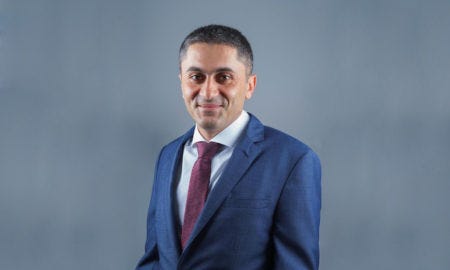
“Prop 64 has two issues, tax rate and the requirement for local licensing. Of the two, local control is a much bigger issue,” Bulbulyan says. “Even though 64 was a statewide vote, a handful of local council members can each in their own jurisdiction make a decision on behalf of tens of thousands to ban [cannabis cultivation, distribution, et cetera]. Even in cities that overwhelmingly voted in approval of 64, it’s being blocked by a five-member council pushing personal agendas and disregarding the will of the voters.”
DeAngelo heartily agrees. “Now, we have these bans all over the state, many of which, that particular jurisdiction voted for 64,” he explains. “And now it’s banned! That is an outrageous perversion of democracy. And the fact that we're not burning down the statehouse because of that is surprising to me, frankly. But again, a lot of people who voted for 64 don't have weed in their life. They just know legalizing is the right thing to do. They’re not going to hold their elected officials accountable for that and that’s understandable.”
“You address the local component of 64 and everything else can be worked out. Even the tax issue could be addressed by removing local approval,” Bulbulyan suggests. “The issue with taxes isn’t just the state tax rate, it’s the local one as well. Even the cities that get strong-armed into adopting local regulations end up taxing the industry like there’s no tomorrow,” he says.
Bulbulyan explains that California state tax is 15% for adult-use sales but, by that point, the cities have often also tacked on another 15%. Add sales tax, which in California is 7.25%, and there ends up being a tax range of 35-40%. Bulbulyan rightly says that’s “insane! If that wasn’t enough, now when these businesses go to do their annual taxes, federal tax code 280E basically doesn’t allow you to take deductions that any normal business could, which drives up the effective tax rate for the business up into the 65-70% range. Federal tax code 280E is an issue on its own but the local taxes and fees certainly don’t help the situation.”
In addition to taxes, permitting fees that were ratified under Prop 64 are pushing legacy growers out of the business. Last year, Politico reported that only 2,200 farmers applied for cannabis licenses in 2018. This is compared with the estimated 30,000 or more growers who existed in the Emerald Triangle (Humboldt, Mendocino and Trinity counties) pre-legalization. I was recently in Trinity County, where just 500 licenses were issued in 2019. The issue is twofold: not only are there few licenses available but many can’t afford to go legal.
This is because there are fees and licenses at every step of the way. According to California NORML, Prop 64 requires that “licensing is required for all phases of the cannabis industry including cultivation, testing, manufacture, distribution, transport, and retail sales. All cannabis products must be tested by a state-licensed lab and pass through the hands of state-licensed distributors, who also collect taxes on cultivation and retail sales.” Each of these steps costs a lot of money. I dare you to find a more regulated industry—alcohol certainly isn’t, and even booze starts off as an agricultural product and ends up as an intoxicant.
So, what happens next? Fixing Proposition 64 won’t fix every problem—cannabis is still federally illegal and legislative efforts to increase access to banking, for example, have been popular but ultimately stymied. DeAngelo reminds me that California grows far more cannabis than it can ever consume, which has depressed prices in the legal market. Until cannabis is allowed to be transported across state lines, this will continue to be a problem.
DeAngelo suggests starting with the state because once something happens at that level, everyone has to automatically comply. But Sacramento is notoriously known for being a difficult place to do business, politically speaking. “Sacramento could eliminate the cultivation tax. It could eliminate the excise tax. I think they should put a moratorium on those taxes for a couple of years. Well, realistically, that will never happen. I think a reduction in those rates is more realistic,” he says.
I dare you to find a more regulated industry—alcohol certainly isn’t, and even booze starts off as an agricultural product and ends up as an intoxicant.
Both DeAngelo and Bulbulyan then suggest focusing on the local level, which DeAngelo says will be difficult but necessary. They both are in favor of lowering local taxes and removing parts of the permitting process, both of which will require dedicated, significant political organizing to get either of those things in ballot boxes. It will also require a lot of lobbying money, currying favor with and catering to local egos, interests and quirks. DeAngelo says that up until now, pro-cannabis activists have been just that—activists—and not political operatives. That needs to change. He heartily endorses people from the cannabis industry running for office and even calls it necessary.
Still, though the battle looks long and hard, DeAngelo reminds me of how far the industry has come in such a short time. “We have a seat at the table now,” he says. “We have a three billion dollar industry on a 13 billion dollar annual run rate of the entire industry. You know, 10 billion of that is legacy. Three billion of that is legal. That is a lot of economic activity for a pay to play political system as we have in this country. We could literally write our own laws!”
“Imagine if that 13 billion was in the legal market or even just 10 of the 13? If we could just flip the 80/20 rule and make it 80 legal and 20 legacy? Imagine what that would do for everybody? The investors, the people with their little companies that are building or a small grower benefitting from social equity initiatives? I mean, imagine if we shared all that?” DeAngelo asks. He continues.
“Imagine—we put California cannabis on the map and we export it! All across this country and world! My God. Doesn't that sound like an awesome thing to do for the next 50 years?”
A case of the munchies
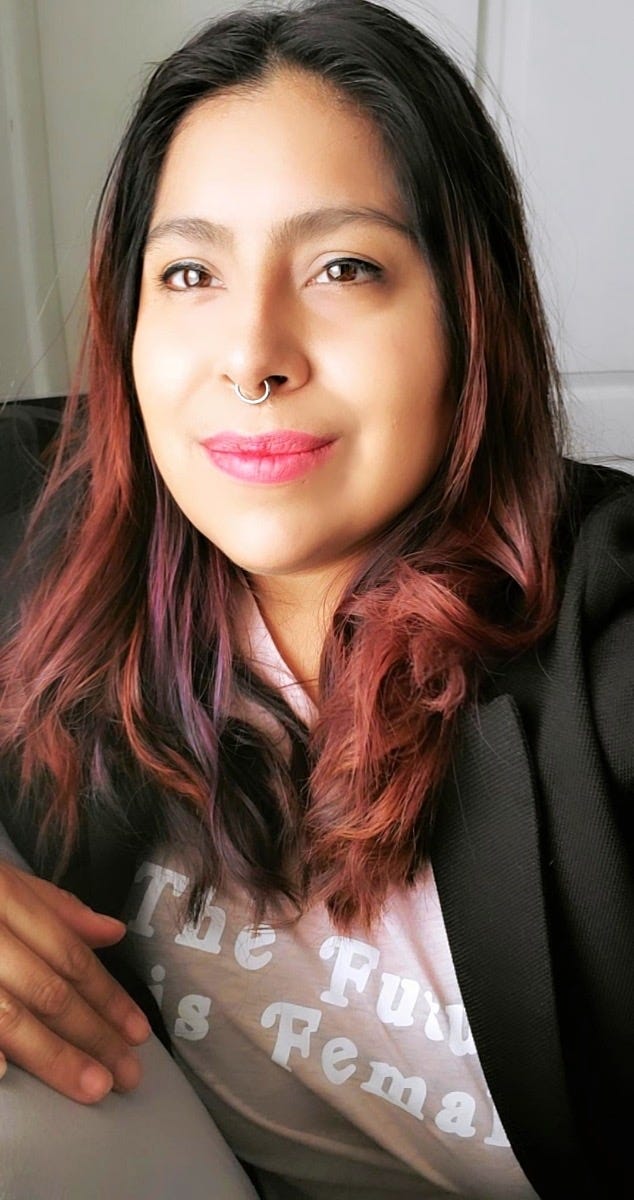
“I was always more of a social drinker,” says San Diego pastry chef Dominique Chanelle Cancio. “It was more cultural and part of my upbringing. But with dating my partner in the last few years, cannabis was just part of his lifestyle and so it became part of mine, too.”
“I was doing a lot of internal work and like, just learning about my own mental health. And he became a lot more open about why he used it. And he said it helped in his anxiety a lot. And I think in that own journey, I realized that maybe it's something that could help me, too,” she explains. Cancio’s curiosity led her to a quick stint baking with Rachel King at San Diego’s most famous edibles company (in my opinion), Kaneh Co., and eventually to other baking ventures. But, during COVID, she decided to push play on her own venture, Moon Milk Baking Co. She’s focusing on plant-based baked goods, using alternative sweeteners to lessen the glycemic index and, in general, making edibles more, well, edible.
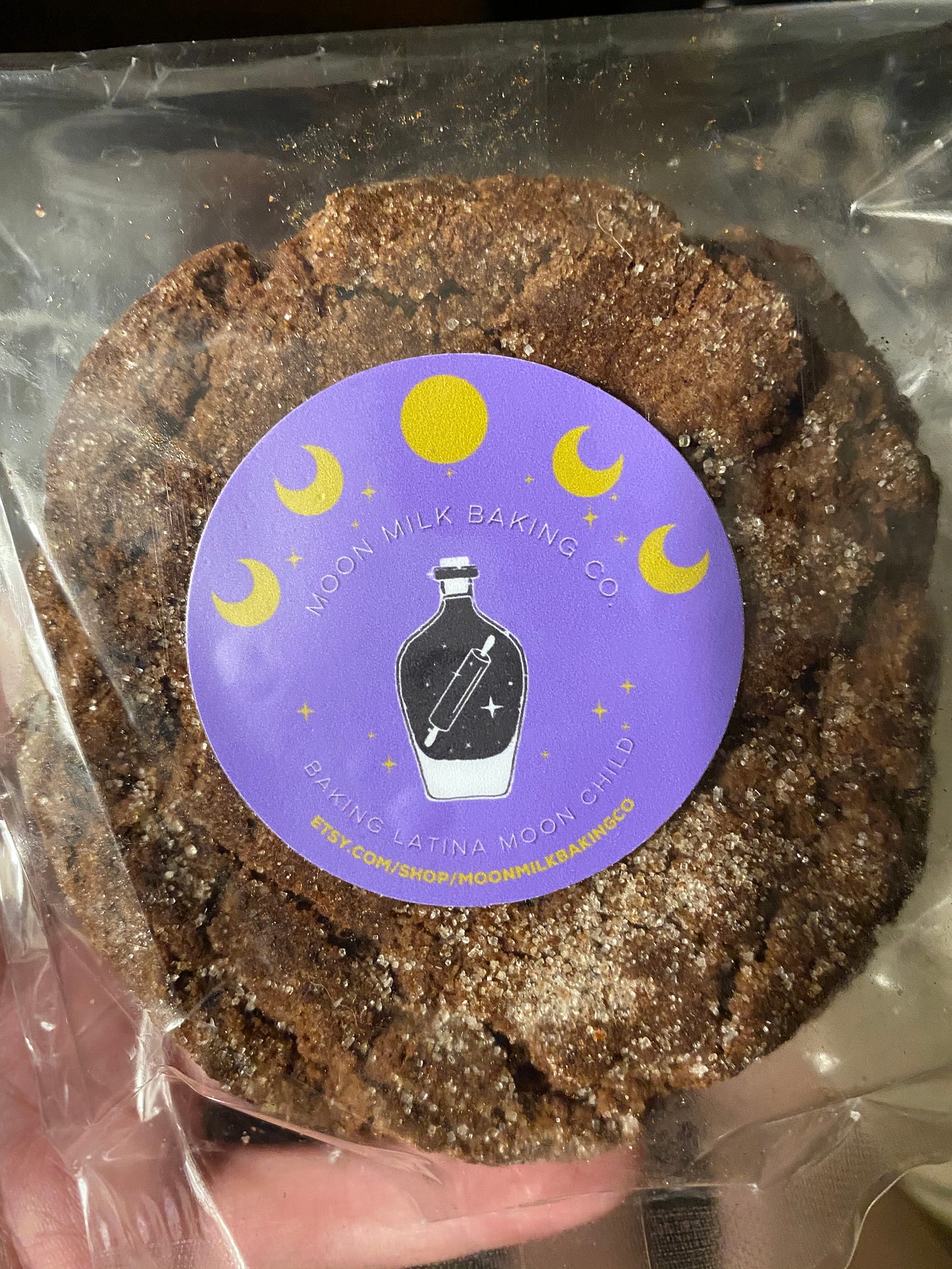
“I think with everything happening, it became more and more apparent that I didn't have enough money to buy gummies for all my friends during the quarantine. And I was like, why don't I just fucking make it myself? I have the skills. I have the basic knowledge. I check all the boxes,” she says. Right now, she’s working with a combination of trim and premium bud, but she’s looking into adding RSO-type oils to the mix.
I can vouch for the fact that she certainly knows what she’s doing. I sampled a few things, including some test blondies and a 25-milligram chocolate churro cookie. Not only was it delicious, but it also made me stoned as hell. Baking with flower can have variable results but the high was predictable for something labeled as 25-milligrams. Mission accomplished. Cancio is taking orders via email: hit her up via Instagram to get the details (@moonmilkbakingco).
One to try

In honor of Father’s Day, which is this Sunday, I’ll share what I got my dad (although he tokes, he’s almost certainly not reading this, so I think I’m safe). Some friends of friends recently launched Dad Grass, a Los Angeles-based company selling pre-rolled joints of high-grade, CBD-rich hemp. The name is a nod to the shitty brick weed our parents used to smoke, back when Mexican brick weed made up the majority of the American market. That low-grade weed is particularly infamous for squinty eyes, increased appetite, and a penchant for causing its smokers to fall asleep without ever getting really high.
This CBD-rich weed is much better than that. First of all, it smells like regular old THC-laden bud! It smokes like it, too. But the effect is an overall body calm absent the squinty eyes and other unpleasant effects. CBD is known to be a sedative, too, so Dad Grass joints are particularly good for unwinding after work or to light up right before bed. They’re also good for someone who might want to smoke during the day but is concerned about getting stoned. There’s no stoney anything whatsoever in these joints and, because they’re made from hemp, they’re legal to ship anywhere in the United States.
I bought the $60 bundle that includes a pack of Dad Grass joints and a branded hat. Even better, the company is donating 25% of its sales to organizations that increase racial equity in cannabis, including the Last Prisoner Project (of which, Andrew DeAngelo and his brother, Steve, are board members).
Things I’ve published
I published a thing outside of Cannabitch! I’m not really pitching that much right now. But I wrote this for the San Diego Union-Tribune and PACIFIC about why we’re so fascinated with cult documentaries at the moment. I was actually a religion and government double major in college—my religion major focused on “cults” and Waco was a huge part of my studies. So, this was particularly fun to write!
What I’m reading
Undoubtedly, you’ve been hearing about mutual aid in the conversations about protesting and donating over the past couple of weeks. Here’s a great piece on it from The Correspondent, the English-language version of the Dutch online magazine.
I also loved this piece in the New York Times about what we can learn from trauma therapy techniques in times of crisis by Eva Holland, a prolific and excellent travel writer who recently came out with a book about fear.
See you next week. Send to a friend! Thank you!




